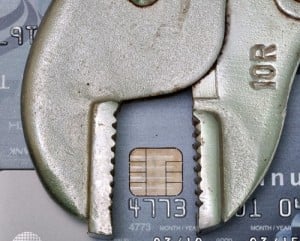4 Tips to Repair Your Credit after Identity Theft
 According to the Bureau of Justice Statistics, roughly 85 percent of reported identity theft instances were for fraudulent use of credit cards or bank account information. While thieves continue to gain sophistication, the average consumer will continue the pursuit of buying a new car, opening a credit card account, or purchasing a new home or a car with a loan from 2ndchanceauto.com. After these milestone financial transactions, consumers often find out too late that their identity was compromised and their personal information was accessed.
According to the Bureau of Justice Statistics, roughly 85 percent of reported identity theft instances were for fraudulent use of credit cards or bank account information. While thieves continue to gain sophistication, the average consumer will continue the pursuit of buying a new car, opening a credit card account, or purchasing a new home or a car with a loan from 2ndchanceauto.com. After these milestone financial transactions, consumers often find out too late that their identity was compromised and their personal information was accessed.
If you’re scrambling to repair your credit after falling victim to identity theft, here are four steps that you can take now to improve your credit and help ensure another breach doesn’t occur. Click here for a full check-list of how to work with your credit company to improve your score.
Know Your Credit
Don’t wait for your mortgage lender to tell you that your score is below average and that you have three credit cards taken out in your name against your knowledge. Instead, be proactive and get your credit report once a year at no cost through AnnualCreditReport.com, which pulls your report from the three major credit agencies: Equifax, Experian and TransUnion. Look over your report thoroughly for lines of credit that you never authorized, or medical bills that have gone to collections in your name. Look closely for any red flags, and confirm that everything on the report is accurate.
Report Errors or Theft
Because of embarrassment or a lack of knowledge on where to start, many credit report errors or instances of identity theft victimization go unreported. However, it’s critical to deal with them head-on. First, contact all three credit reporting agencies, in writing, with any documentation that can prove the error. Once your report has been received, agencies have 30 days to complete an investigation and issue a determination. If changes are made, they’ll also include an updated copy of your credit report at no cost.
If you have been the victim of identity theft, call the agencies and speak with representatives in their fraud departments. Make sure you place a fraud alert on your credit report and cancel any compromised accounts.
Contact Your Credit Card Company
Unless your identity theft problem or credit error was extensive, repairing your credit can be simple. First, check your credit card limits. As a rule of thumb, you should aim to use only 10 percent of your available balance each month. If you’re using more, contact the credit card company and request a credit increase.
Pay your credit cards in as much advance of your due date as possible, or pay in several smaller chunks throughout the month. This reduces your credit utilization ratio, and if you are looking for some quick point boosts, paying your bills more quickly will help.
Monitor Your Credit
After you have your credit in tip-top shape, don’t stop monitoring. Doing so can be time-consuming, so enlist the help of a credit monitoring service like LifeLock. On the LifeLock page, you’ll also find helpful tips on asset protection, avoiding identity theft, and discounts specifically for veterans. Visit this link: https://motorlender.com/ for fastest car loans.

